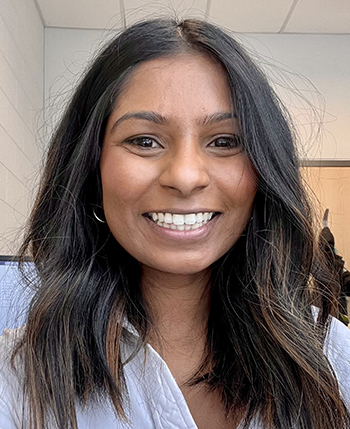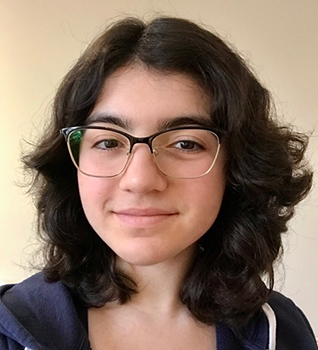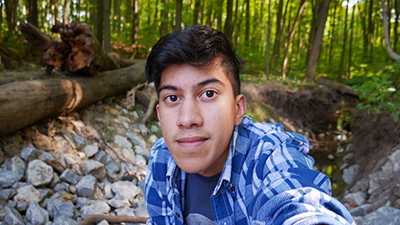
Students in the Faculty of Environmental and Urban Change (EUC) speak about their Cross-Campus Capstone Classroom (C4) experience and how they contributed to the United Nations Sustainable Development Goals.
By Elaine Smith
The Faculty of Environmental and Urban Change is now offering its senior students a capstone course opportunity through York University’s Cross-Campus Capstone Classroom (C4) program and a half-dozen students took the plunge in 2021-22.
The C4 program allows students to work in interdisciplinary teams on real world challenges that have social impact and they generally take on these challenges at the behest of a client, either corporate, municipal or not-for-profit. The courses are year-long and focus on projects that advance the United Nations’ Sustainable Development Goals (SDGs).

“We highly recommend this for final-year students as a way to add multi-disciplinary work experience to their resume,” said Aren Sammy, experiential education (EE) co-ordinator for EUC, who noted that experiential learning is highly valued by the Faculty. “By this point in their university careers, they have a strong theoretical foundation and can bring something new to the table in a workplace; they can innovate. It’s an exceptional way to add to their resumes. What sells you as a professional is experience and how you have applied your theoretical knowledge.
“The students are stepping out of their comfort zones in multiple ways and that’s where so much growth happens.”

For example, Catherine Lombardo and her team are working with the Markham Environmental Advisory Committee to help the city determine how it can encourage its residents to move from fossil fuel property maintenance devices, such as lawnmowers and snowblowers, to those that use renewable energy sources. The project addresses UN SDG 11, creating sustainable communities and cities, and UN SDG 13, taking action to combat climate change.
“We are working on a plan to reduce the amount a city produces, as well as making this plan something that can be self-sustained on both a municipal and citizen level,” Lombardo said. “It feels really good to apply what you’ve learned after so many years to a real-world project and, sometimes, in a way you might not expect.”

Nikash Persaud is part of a team working with the Town of Whitchurch-Stouffville on improving its agri-tourism and bringing more visitors to the town. The project looks toward UN SDG 11, creating sustainable communities and cities, and UN SDG 8, decent work and economic growth.
Persaud said a background in environmental science “allowed me to feel like I had a firm grasp on the concepts our project addresses. In addition to that, I feel that environmental science courses set me up to have a very multi-faceted approach, making it easy to connect with group members from drastically different backgrounds.”
There have been real benefits to the capstone course, noted Persaud, such as “meeting people in the field I want to work in… Being able to work and meet with mentors like the stakeholders in our project showed me so much of what I would be doing on the job in the future and helped me affirm my career choices.”
Both students are pleased by the skills they have developed, skills they are confident will help them in the workplace. They cited improvements in their abilities to work as part of a team and in their communications skills.
“Working in this team setting made me learn how to properly rely on other group members to handle tasks so I don’t get overwhelmed,” said Lombardo. “I have also gotten very efficient at writing an email to someone I’ve never met before and at making it sound both concise and professional.”
EUC considers experiential education as a significant component of its offerings, says Sammy, and the capstone course provides unique opportunities.
“As a new Faculty our goal is to respond to the most pressing challenges facing people and the planet,” said Sammy. “To do this, we need students in the field as much as possible.
“We really focus on bringing hands-on experiences and opportunities to interact with employers and community partners into all courses. We are aware that collaboration is the key to positive change. Without opportunities for diverse thinking and to take ambitious action outside of the classroom, students will never experience their true potential to make an impact in the field.”
Especially as the pandemic wanes, EUC expects students to be interested in the capstone opportunity. However, they also have a course option for an internship or placement in a field of interest.
“As we’re easing back into in-person courses, students are eager to connect with peers and industry professionals and partner organizations are eager to welcome the students back,” said Sammy. “It’s a reciprocal relationship. Partners need help and enjoy the innovative approach students bring, while the students like the break from the classroom and enjoy challenging themselves in the professional world.”
